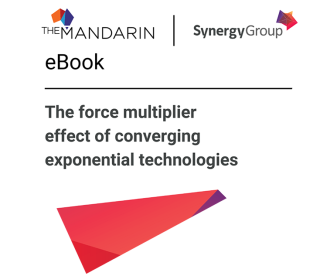
Why sustainable contract management makes for smart business

In the realm of business operations, sustainability has become a buzzword that is often associated with environmental initiatives and corporate responsibility. While reducing waste, conserving resources, and reducing carbon footprints are undeniably crucial aspects of sustainability, there is one underrated area where this ethos can truly shine – contract management.
Sustainable contract management represents a shift in modern business practices, where the focus extends beyond mere transactions to encompass long-term environmental, social and economic impacts.
The Australian Government Contract Management Guide serves as a comprehensive roadmap for government entities to navigate the complexities of managing contracts effectively and efficiently. It underscores the importance of adopting sustainable practices, promoting supplier diversity, and fostering innovation in contract management to support the government's broader objectives of economic growth, social responsibility, and environmental stewardship.
Under the Commonwealth Procurement Rules (CPRs), sustainability is emphasised as a key consideration in procurement decisions. Government entities are required to consider the environmental impacts of their procurement activities and strive to minimise negative effects on the environment. This includes promoting energy and resource efficiency, reducing waste, and supporting sustainable practices in contract management. The CPRs also outline principles of accountability, transparency, and integrity in procurement processes, ensuring that sustainability considerations are integrated into all stages of contract management. This includes promoting fair and ethical practices, fostering supplier diversity, and actively seeking opportunities to reduce environmental impact in contract performance.
So, what exactly does sustainable contract management entail? At its core, it involves adopting practices that prioritise efficiency, transparency, and environmental impact reduction throughout the entire contract lifecycle. From drafting and negotiation to execution and renewal, every step presents an opportunity to make a positive difference.
One key aspect of sustainable contract management is digital transformation. By moving away from traditional paper-based processes and embracing digital platforms, organisations can significantly reduce their paper consumption, carbon emissions, and overall environmental footprint. That’s not to mention the added benefits of increased security, accessibility, and efficiency that come with digital contract management systems.
But sustainability in contract management goes beyond just going paperless. It also involves cultivating long-term partnerships based on mutual trust, transparency, and ethical practices. By incorporating sustainability clauses, such as renewable energy commitments, ethical sourcing requirements, or waste reduction targets, organisations can align their contractual agreements with their environmental values.
Sustainable contract management is not just about saving the planet – it's also about saving time and money. By automating routine tasks, streamlining approval processes, and tracking key performance indicators, organisations can optimise their operations and drive cost savings while reducing their environmental impact.
Contract management may not always seem like the most thrilling aspect of business operations. However, mastering sustainable practices and integrating sustainability into every aspect of contract management – they are not only smart business strategies, but can be a game-changers for organisational success.
At Synergy Law, we are deeply committed to these types of practices and have established excellent procurement-by-design best-practice techniques, templates and protocols that can help Commonwealth, State and local governments entities ‘up their game’ not only in the short term, but also in the longer term. Our goal is to help organisations develop strategies to train-and-uplift internal capabilities, grow the expertise of in-house teams that are ‘best-in-class’ and create knowledge-transfer mechanisms with each-and-every engagement. That’s the Synergy way – and it’s a part of our personal commitment to making a difference in the ways that we and our clients work together.


Why you can’t be certain with confidence – in FOI matters?

The Crucial Role of High-Performance Teams in Consulting Project Management
